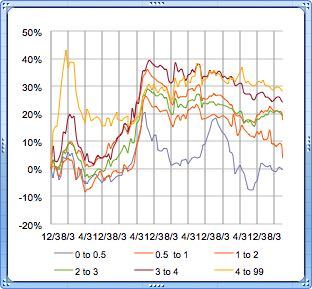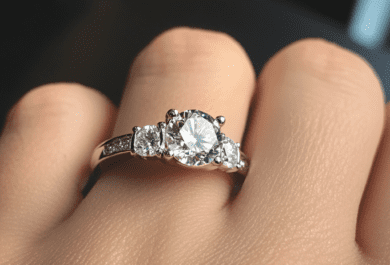This Article is dedicated to the memory of a wonderful Independent Appraiser & a wonderful friend:
William (Bill) Lieberum (A.K.A. RockDoc) 1948-2007
Diamonds and jewelry sold in today’s market, are usually accompanied by several pieces of documentation, including the diamond grading report and an itemized bill of sale / sales receipt.
In many instances, sellers also offer and include an “appraisal” as part of their sales package. Sometimes this appraisal is created in-house by a member of the staff, while other times, the seller will contract with a 3rd party to appraise all of the diamonds and jewelry they sell and will provide these appraisals to their customers.
The purpose of this article is to explain the benefit for a customer to specifically obtain a proper Independent Appraisal and to clearly distinguish between an Independent Appraisal, versus other forms of appraisals, including appraisals offered by the seller.
From the outset, we need to distinguish between a bill of sale / sales receipt and an appraisal.
What is an Appraisal?
An appraisal, by definition, is a document which provides comprehensive details of the diamond or jewelry item and seeks to determine its proper market(replacement) value.
What is a bill of sale or sales receipt?
A sales receipt is a document which the seller provides to the customer, containing the details of the items purchased. The purpose of this document is to detail and itemize the prices charged for each of these items.
Why get an Appraisal?
One of the first things many customers do after purchasing jewelry is to have it properly insured.
In order to facilitate proper insurance coverage, the insurance company will need to determine the correct value of the jewelry item. This is best accomplished by providing the insurance company with a detailed Appraisal of the jewelry item, which outlines its various specifications and provides an independent opinion of actual market value.
A sales receipt is of far lesser importance to the insurance company, since the valuation applied/charged is not designed to be an independent assertion of actual market value.
Therefore, many insurance companies will not accept a sales receipt in lieu of an appraisal and will insist upon an actual appraisal instead. For this reason, a customer should always be encouraged by the jeweler/seller to obtain a proper Appraisal, so that they can be confident in the true market value of the item and so that they can secure proper insurance coverage.
Where to get an Appraisal
Typically, there are 4 different methods to obtain an appraisal:
The seller provides his customers with a ‘free’ in-house appraisal generated by a member of his staff.
- The seller contracts with a 3rd party appraiser and provides his customers with these ‘free’ appraisals.
- A jewelry store or jewelry seller supplements his primary business model by offering/selling appraisals on jewelry items not purchased from them.
- An Independent Appraiser, who does nothing other than appraise diamonds and jewelry for a living sells appraisals for items purchased anywhere and everywhere.
Notable Distinctions between Appraisals
In examining these 4 types of appraisals, we find important and notable distinctions between them, as we shall enumerate.
To explain the 1st and 2nd methods properly, I’d like to offer the following analogies:
Imagine you are in the market to purchase a new home. One of the first and most crucial aspects in determining the valueof the house is to conduct a full and thorough home inspection with a qualified home inspector. Now imagine that the seller informs you that he is a qualified home inspector and offers to provide you with a free home inspection, would you accept? Of course not! You would understand that there is an obvious vested interest on the part of the seller to ensure that the sale goes through. Furthermore, you would clearly see how this vested interest, translates into a conflict of interest to preclude him from offering such a service.
Now suppose the seller offers to provide you with a free home inspection from a qualified 3rd party home inspector whom he contracts and works with for all of his sales, would you accept such an inspection as a truly impartial inspection?
These analogies are well applied to a seller who either offers a free in-house appraisal, or who contracts with a 3rd party appraiser to offer free appraisals on all of the merchandise he sells (methods 1 & 2).
I’d like to suggest that when a seller is involved (in any capacity) in issuing an appraisal (which by definition – designates a dollar value to the items he is selling) to his customer, he is engaging in a clear conflict of interest.
Sellers cannot remain impartial in evaluating their own merchandise, since they have a vested interest to ensure, at the very least, that the items sold are evaluated at or above what the customer paid for it.
Even when the seller contracts with a 3rd party to appraise their jewelry and then offers these appraisals to their customers, such appraisals cannot be considered truly impartial and independent, since the appraiser is hired by and working for the seller directly and is not hired by and working for the consumer directly.
Indeed, I have never heard of a single instance, where an in-house appraisal report offered by the seller, or a 3rd party appraisal report offered by the seller, put the market value of the items sold at less than what the customer paid for it…and for good reason too!
Now let’s examine the 3rd method of obtaining an appraisal, where a jewelry seller or jewelry store will offer and sell appraisals on the merchandise sold by a (competing) jeweler.
I’d like to suggest that herein lies a conflict of interest as well, since a (competing) jeweler is directly involved in selling his own merchandise and therefore might be inclined to slant or undervalue the merchandise of a competitor, in order to promote (and hopefully sell) his own products. Suffice to say, this appraisal report cannot be considered Independent and impartial.
Finally, let us examine the 4th method for obtaining an appraisal. I’d like to submit that the best way to ascertain the true value of a piece of jewelry is to have it Independently Appraised by a competent Appraiser (method # 4) who does not work for – or against the Jeweler who originally sold the item. In this way, customers can rest assured in the value of their merchandise, based upon the independent review of an impartial appraiser.
A truly independent appraiser is one that is hired directly by the consumer and works directly with the consumer and whose only allegiance is therefore to the consumer.
Independent appraisers have no specific reason to inflate, devalue, or conveniently apply same value to any of the items they appraise. In addition, independent appraisers are incredibly thorough and competent and typically provide the customer with a great deal of specificity and details on their jewelry purchases.
The Trust Factor & Importance of Proper Disclosure
Typically, customers trust their Jewelers to supply them with products at, or above fair market value, which is why they entrust them with their business in the first place.
Although there is much merit to the term “Trust but Verify” (coined by President Ronald Reagan), not every customer is willing or interested in paying for a separate and independent appraisal. However, because they need to properly insure their jewelry, they require and rely upon an appraisal document from the seller, which would be deemed acceptable by the insurance company.
This type of customer needs to have a clear understanding that such a document cannot be construed or considered an appropriately independent and impartial appraisal report.
If and when this is fully and properly disclosed to the customer, at least the customer is informed and empowered as to the ramifications of such a document and is made aware of his options.
Final Thoughts
In my experience, I have found that customers are all too often confused and do not clearly understand the distinctions between appraisal documents obtained through the various venues enumerated above. As such, I hope this article will shed some light on this issue and serve to illustrate for the consumer, the importance of securing a truly independent and impartial appraisal.
There are many highly qualified, Independent appraisers listed and featured on these boards and customers can certainly research them and solicit them for their independent appraisal services.
Buying an expensive piece of jewelry is a significant investment. I believe that the added value (both practical and psychological) to the consumer, provided by a truly independent appraisal, more than justifies it expense.
For additional information pertaining to Appraisals & Independent Appraisers, please read this excellent article from the PS Journal “Appraise the Appraiser”
by Judah Gutwein
Excel Diamonds

Click Here to Discuss












